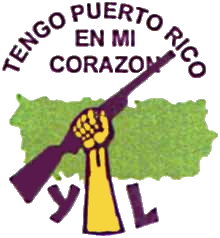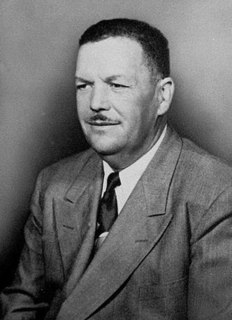Related Research Articles

Jeffrey Lionel Dahmer, also known as the Milwaukee Cannibal or the Milwaukee Monster, was a convicted American serial killer and sex offender who committed the murder and dismemberment of 17 men and boys between 1978 and 1991. Many of his later murders involved necrophilia, cannibalism, and the permanent preservation of body parts—typically all or part of the skeleton.

Christopher Scarver Sr. is an American convicted murderer best known for his fatal assault on serial killer Jeffrey Dahmer and Jesse Anderson at the Columbia Correctional Institution in 1994. Scarver used a 20-inch (51 cm) metal bar, which he had removed from a piece of exercise equipment in the prison weight room, to beat Dahmer and Anderson. Both Dahmer and Anderson later died from their injuries. Scarver was sentenced to two further life sentences for the killings.

The New Black Panther Party (NBPP) is an American black nationalist organization founded in Dallas, Texas, in 1989. Despite its name, the NBPP is not an official successor to the Black Panther Party. Members of the original Black Panther Party have insisted that the newer party is not legitimate and "there is no new Black Panther Party".

John Olof Norquist is an American politician who was the 37th mayor of Milwaukee, Wisconsin. He served as mayor from 1988 until he left office in 2004 to lead the Congress for the New Urbanism.

Austin is one of seventy-seven officially designated community areas in Chicago, Illinois. Located on the city's West Side, it is the second largest community area by population and the second-largest geographically. Austin's eastern boundary is the Belt Railway located just east of Cicero Avenue. Its northernmost border is the Milwaukee District / West Line. Its southernmost border is at Roosevelt Road from the Belt Railway west to Austin Boulevard. The northernmost portion, north of North Avenue, extends west to Harlem Avenue, abutting Elmwood Park. In addition to Elmwood Park, Austin also borders the suburbs of Cicero and Oak Park.

The Young Lords was a Chicago-based street gang that became a civil and human rights organization.The group aims to fight for neighborhood empowerment and self-determination for Puerto Rico, Latinos, and colonized people. Tactics used by the Young Lords include mass education, canvassing, community programs, occupations, and direct confrontation. The Young Lords became targets of the United States FBI's COINTELPRO program.

Henry Walter Maier was an American politician and the longest-serving mayor of Milwaukee, Wisconsin, holding office from 1960 to 1988. A Democrat, Maier was a powerful but controversial figure, presiding over an era of economic and political turbulence for the city of Milwaukee.
John A. Balcerzak is a former police officer from Milwaukee, Wisconsin who served as president of the Milwaukee Police Association from 2005 to 2009. Balcerzak first gained national attention in 1991, when he was fired for having handed over an injured child to serial killer Jeffrey Dahmer, despite bystanders' protests. He appealed his termination and was subsequently reinstated. Balcerzak retired from the Milwaukee Police Department in 2017.

Kuwasi Balagoon, born Donald Weems, was an openly bisexual New Afrikan anarchist and a member of the Black Panther Party and Black Liberation Army. He was sentenced to life imprisonment in 1982 following his participation in the 1981 Brink's robbery, which left two police officers and a security officer dead.
Jesse Michael Anderson was an American convicted murderer who himself was murdered in prison, along with serial killer Jeffrey Dahmer, by fellow inmate and convicted murderer Christopher Scarver.
Edward Michael McCann is an American attorney and politician who served as district attorney of Milwaukee County, Wis. from 1969 to 2007. A Democrat, McCann gained recognition for the length of his tenure and his successful record as a trial attorney.

Vernon Ferdinand Dahmer, Sr. was a leader with the Civil Rights Movement and president of the Forrest County chapter of the NAACP in Hattiesburg, Mississippi. He was murdered by the White Knights of the Ku Klux Klan for his work on recruiting African Americans to vote.

The New Panther Vanguard Movement (NPVM), originally known as the New African American Vanguard Movement (NAAVM) was created in South Central Los Angeles in 1994 as a response to the Los Angeles riots of 1992. Former members of the Black Panther Party and other community activists came together after the riots and shared their frustration with the lack of leadership in the Black community. After various dialogues, they decided to create a grassroots organization that would reflect the vision and community spirit of the Black Panther Party.
Michael Imanu McGee Jr., is an American politician who served as alderman of Milwaukee's Sixth District. He was elected in April 2004 to become along with his father, former alderman Michael McGee Sr., the first father and son in the history of Milwaukee to serve on the Common Council. His controversial tenure on the Milwaukee Common Council culminated in his arrest on Memorial Day weekend, 2007. He subsequently won the primary election from jail and lost the general election for re-election.

The Black Panther Party (BPP), originally the Black Panther Party for Self-Defense, was a Black Power political organization founded by college students Bobby Seale and Huey P. Newton in October 1966 in Oakland, California. The party was active in the United States between 1966 and 1982, with chapters in many major cities and international chapters in Britain and Algeria. Upon its inception the Black Panther Party's core practice was its open carry armed citizens' patrols ("copwatching") to monitor the behavior of officers of the Oakland Police Department and challenge police brutality in the city. From 1969 onwards, a variety of community social programs became a core activity. The Party instituted the Free Breakfast for Children Programs to address food injustice, and community health clinics for education and treatment of diseases including sickle cell anemia, tuberculosis, and later HIV/AIDS. It advocated for class struggle, with the party representing the proletarian vanguard.
Robert James Parins was an American judge and football executive. Parins was born and raised in Green Bay, Wisconsin; he received a law degree from the University of Wisconsin Law School in 1942. He served as the Brown County, Wisconsin, district attorney from 1949 to 1950 and as a circuit court judge for the county from 1968 to 1982. In the early 1990s, Parins played a controversial role in a case related to Jeffrey Dahmer, an American serial killer.
The Revolutionary Black Panther Party or RBPP is a revolutionary organization, advocating for black nationalism. The Revolutionary Black Panther Party, claims continuity of the Black Panther Party of the 1960s, as their leader Dr. Alli Muhammad MS, PhD, MD, was raised a member. In 1992 the RBPP was officially named and has been carrying on with its started aims of "protecting and defending our people against genocide, ethnic cleansing, crimes against humanity, the Black African Holocaust and race war waged against people of African descent."
The British Black Panthers (BBP) or the British Black Panther movement (BPM) was a Black Power organisation in the United Kingdom that fought for the rights of Black people and peoples of colour in the country. The BBP were inspired by the US Black Panther Party, though they were unaffiliated with them. The British Panthers adopted the principle of Political Blackness, which included activists of Black as well as South Asian origin. The movement started in 1968 and lasted until around 1973.
Barbara Easley-Cox is a civil rights activist, best known for her involvement with the Black Panther Party. At the time of her first involvement, she was attending San Francisco State University. She now works in Philadelphia with a focus on literacy and education for youth.
Lucille Berrien is an activist from Milwaukee. She was good friends with fellow Open housing advocate James Groppi. She ran for mayor of Milwaukee in 1972, becoming the first African-American woman to do so, but lost the race to incumbent Henry Maier. Though she had recently joined the Black Panther Party, she ran a non-partisan race for mayor. Berrien also ran for State Treasurer of Wisconsin in 1990 with the Labor–Farm Party of Wisconsin, but lost to Cathy Zeuske.
References
- 1 2 3 4 "New Black Panther Party". Encyclopedia.com.
- ↑ Shaper Walters, Laurel (August 16, 1991). "Dahmer Case Unleashes Black Anger in Milwaukee". The Christian Science Monitor .
- ↑ Maraniss, David (July 18, 1990). "Midwest Alderman With a Militia Threatens to 'Disrupt White Life'". The Washington Post .
- 1 2 Wilkerson, Isabel (April 6, 1990). "Call for Black Militia Stuns Milwaukee". The New York Times .
- ↑ Dolan, Barbara (April 23, 1990). "Eruptions in The Heartland: McGee's Militia". Time .
- ↑ Musgrove, George Derek (2019). "'There Is No New Black Panther Party': The Panther-Like Formations and the Black Power Resurgence of the 1990s". The Journal of African American History . 104 (4): 619–656. doi:10.1086/705022. S2CID 210503508.
- 1 2 3 "The Prodigal Son". Milwaukee. September 25, 2007.
- ↑ "Milwaukee City Council censures Alderman McGee". Jet . July 23, 1990. Retrieved April 22, 2021.
- ↑ Mitchell, Jr., Thomas E. (November 16, 2016). "The Panthers roar again" (PDF). The Milwaukee Community Journal.
- ↑ Worthington, Rogers (January 20, 1992). "Milwaukee Alderman May Have Gone Too Far With Latest Terrorist". Chicago Tribune .
- ↑ Worthington, Rogers (February 22, 1992). "Milwaukee Alderman Tries a New Path". Chicago Tribune.
- ↑ Theimer, Sharon (September 11, 1994). "'Black Militia' Vows a War on Property: Milwaukee: Radio talk show host calls for 'aggressive nonviolence' unless the government creates jobs, improves education and housing, and takes other steps against urban poverty". Los Angeles Times .